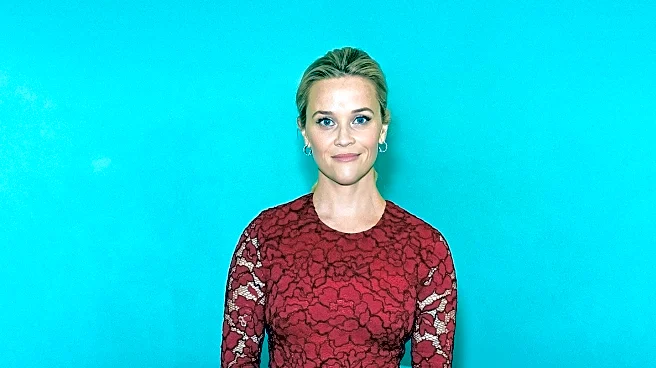What's Happening?
Reese Witherspoon has openly shared her experience with postpartum depression following the birth of her first child, Ava Phillippe, in 1999. In interviews with Harper’s Bazaar U.K., The Cut, and NBC New York, Witherspoon described the period as 'really
hard,' highlighting the overwhelming pressure and unsolicited opinions she faced as a young mother. At 23, she encountered challenges due to her youth, with many people offering unsolicited advice on parenting. Witherspoon emphasized the importance of mental health support, noting that she sought medical help for her postpartum depression, a resource not available to everyone.
Why It's Important?
Witherspoon's candid discussion on postpartum depression sheds light on the mental health challenges faced by new mothers, particularly those who may not have access to necessary support. Her openness contributes to the broader conversation about mental health and the need for accessible resources. By sharing her story, Witherspoon joins other celebrities in normalizing discussions around reproductive health, potentially encouraging more women to seek help and support. This dialogue is crucial in reducing stigma and promoting awareness about postpartum depression and other mental health issues.
What's Next?
Witherspoon's revelations may inspire further discussions on mental health support for new mothers, potentially influencing public policy or healthcare practices to improve access to mental health resources. As more celebrities speak out, there could be increased advocacy for better support systems and awareness campaigns. Healthcare providers and policymakers might consider these discussions when developing strategies to address postpartum depression and other related issues.
Beyond the Headlines
The discussion around postpartum depression and mental health support highlights ethical considerations regarding access to healthcare. Witherspoon's experience underscores the disparity in resources available to different socioeconomic groups, prompting questions about how society can better support all mothers. Additionally, her story contributes to the cultural shift towards more open conversations about mental health, challenging traditional stigmas and encouraging a more supportive environment for those affected.















